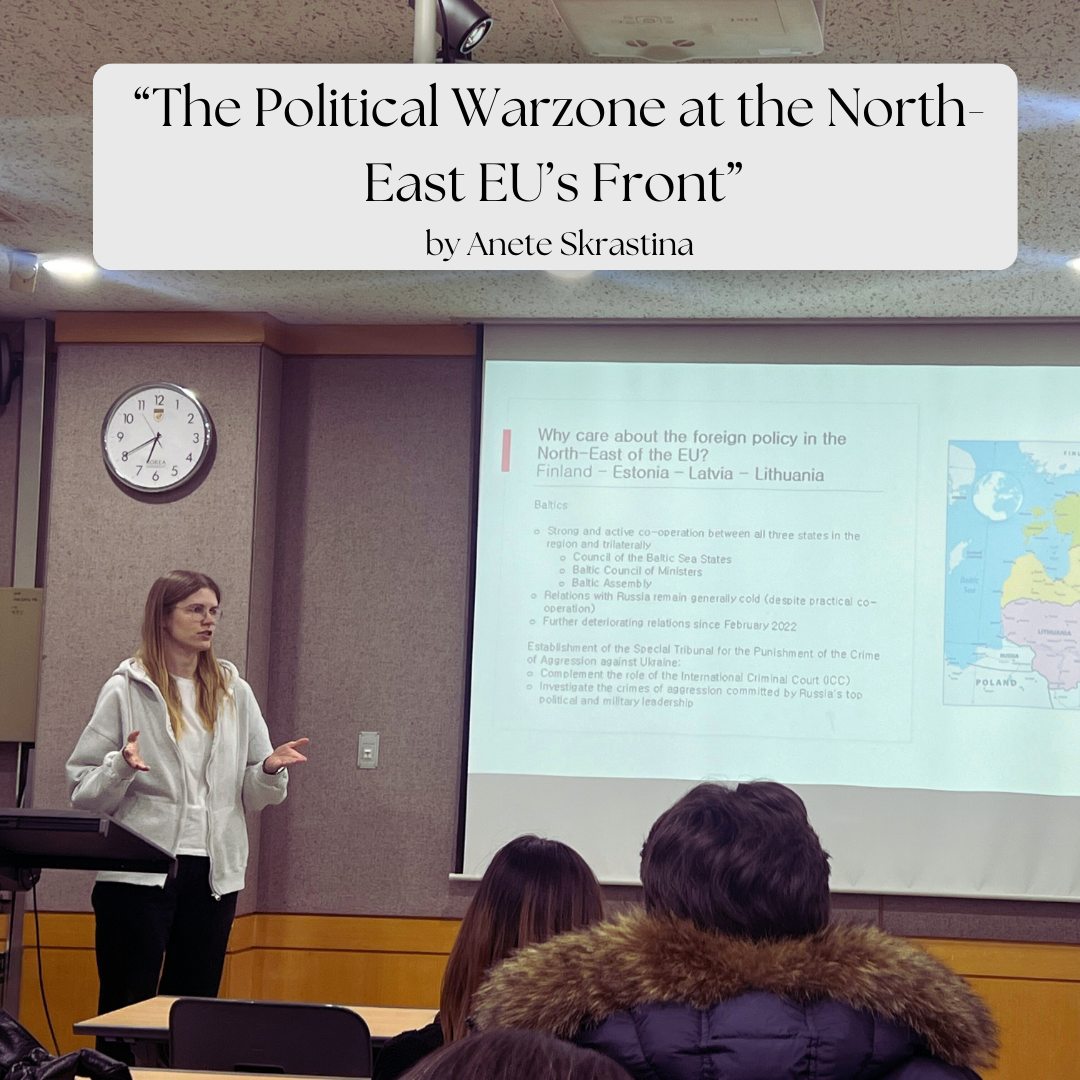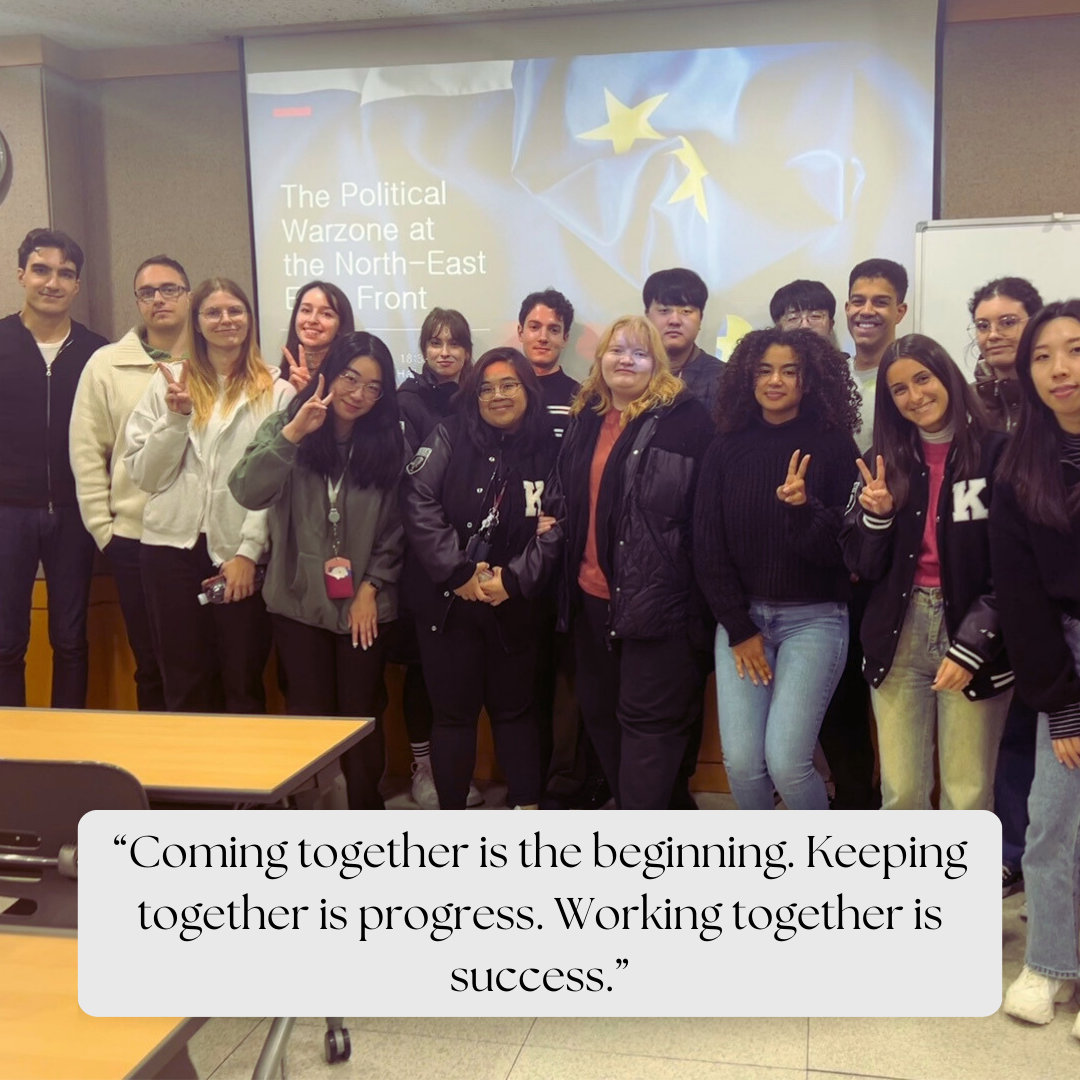2023-2 EU Society 6th Session (Nov 14, 2023)
페이지 정보

본문
The Sixth Session of the EU society began with a presentation titled "The Political Warzone at the North-East EU’ Front," delivered by Anete Skrastina. In this presentation, Anete delved into the geopolitical complexities surrounding Finland and the Baltic states, shedding light on their foreign policy drivers, challenges along the EU's north-eastern border, and the evolving power relations amidst the EU, NATO, and Russia.

Anete commenced her presentation asking, "Where is the North East EU border?" This inquiry centered the discussion on Finland and the three Baltic states—Estonia, Latvia, and Lithuania—highlighting their significance in the geopolitical landscape. Subsequently, the presentation provided comprehensive insights into each country's foreign policy drivers. Here are some of the main points Anete made about each of the above named countries:
Finland has long upheld its independence and favored a capitalist approach. Its concerns revolve around Eurozone stability, sluggish economic growth, migration to Europe, and colliding geopolitical interests. Priorities include deeper engagement in European military security, defense cooperation enhancement, and strengthening bilateral relations with low-security regions. Estonia emphasizes the protection and well-being of its citizens, sustainable environments, and active participation in NATO and the UN. Latvia has maintained strained relations with Russia, suspending bilateral agreements as a response to unforeseen geopolitical shifts. Lithuania views NATO as its primary security guarantee.
The discussion expanded to the challenges along the north-eastern EU border. Finland stresses cooperation between the EU and Russia for Europe's overall security and economy. While Estonia highlights threats to Russia's security and autonomy, noting Moscow's carefulness in direct intervention to avoid conflict with NATO. The Baltic states' position within the EU indicates a shift in perceptions of Russia—from a potential partner to a perceived threat. Anete concluded her presentation, prompting a discussion about shifting power relations along the border of the EU, NATO, and Russia. Attendees expressed temporary confidence in Finland and the Baltic states' security. However, concerns arose regarding Russia's actions post-Ukraine. Energy dependence emerged as a critical point, with suggestions to import resources from Nordic countries. Notably, NATO's increased focus on Baltic security was acknowledged, with Latvia instituting mandatory military service in response. The session concluded with the recognition of the intricate geopolitical dynamics and the perceived vulnerability of the Baltic states.
After Anete’s insightful presentation and discussion that followed, all of the present members were invited to have dinner together.

- 이전글2023-2 EU Society 7th Session (Nov 21, 2023) 23.12.04
- 다음글2023-2 EU Society 5th Session (Nov 7, 2023) 23.12.04
댓글목록
등록된 댓글이 없습니다.










